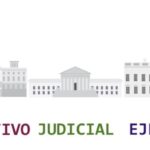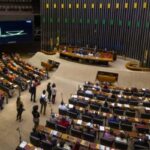We explain what the judicial power is, who makes it up, its functions, powers and other characteristics.

What is the judicial power?
The judicial power is one of the three public powers in which the State is traditionally organized, according to Montaigne's theory of separation of powers.
The judicial branch is responsible for ensuring compliance with the Law.. That is, it deals with the resolution of conflicts in society following what the Constitution or the corresponding legal system dictates.
The judiciary It consists of courts and tribunals which are judicial and jurisdictional bodies. They must address disputes both between public powers and between individuals, or even between the latter and the State.
Thus it is possible to make the pertinent decisions that allow justice to be done in society, punishing the transgressor, repairing the damaged and guaranteeing the rule of law. To this end, this power is structured in a long hierarchical organization chart of courts, tribunals and instances, to confront the conflict at the different levels at which it occurs.
The role of the judiciary in society is very ancient, although it was not always carried out by trained and impartial judges, but by kings, wise men or even the elders of the tribe.
On the other hand, the presence of an element that provides a common criterion of justice to society is essential for life in common. This prevents people from taking justice into their own hands, generating spirals of violence that are later very difficult to resolve peacefully.
See also: Legal regulations
Characteristics of the judiciary
The judicial power necessarily must be governed by the principles of impartiality, proportionality and due process. This ensures that a crime committed receives a fair punishment, not only with whoever was violated, but with the violator himself.
That is, the judiciary must attend to the Law above all things, which even allows it to judge the actions of other public powers, when these contradict the provisions of the Constitution that governs the State.
On the other hand, the judiciary It is the only one of the public powers that is not elected by direct vote of the population, but by judgment of merit and evaluation by the other public powers, also in charge of relegitimizing or changing it. However, the judiciary itself must ensure that even the election of its members occurs within the framework of the Law.
Who makes up the judicial branch?
The judiciary It is made up of a hierarchical set of courts and tribunals. There justice is exercised through the review of evidence, arguments and what is established by the laws themselves.
In charge of this work are judges academically trained in the matter, who approach the matter in a completely impartial manner and who, finally, also proceed in accordance with what is established in the laws and judicial protocols.
The different judicial instances are made up of a body of judges and lawyers (defenders and accusers). Each one is dedicated to a specific aspect of the law, such as criminal, administrative, civil, constitutional, etc., and is highly specialized in it.
At the same time, this power is organized in a pyramidal and hierarchical structure, at the top of which is the Supreme Court of Justice, and then as many courts descend as there are steps, going from the most general (the country) to the most particular (the municipality). , For example).
Functions and powers of the judiciary
The judicial power is responsible for maintaining justice and therefore peace. Its fundamental role is to guarantee the rule of law that is, that all cases judged are evaluated using the same legal criteria, although taking into consideration the mitigating circumstances specific to the case.
In fulfilling these functions, the judiciary also serves as a regulatory body for the other two public powers preventing them from taking actions outside the Constitution. If they do so, it is authorized to declare their nullity and demand the opening of investigations with a view to penalizing those responsible.
Everything that requires judicial decision-making falls within the functions of the judicial branch: from resolving a neighborhood conflict, determining the punishment of a cell phone thief or investigating a corrupt official, to interpreting an article of the Constitution to decide whether A law may or may not be enforced.
Other public powers
Along with the judicial power, the public powers of the State include:
- Executive power. Made up of the president or prime minister of the country, together with his ministerial train, governors, mayors and other personal positions of public election, it is the power in charge of steering the wheel of the State, making the political decisions that are pertinent.
- Legislative power. It may be constituted by a parliament with a single chamber (made up of deputies) or two chambers (made up of deputies and senators). Its function is to draft, approve, modify or repeal laws. Additionally, manage and control the national budget.
Continue with: Powers of the State
References
- “Judicial power” in Wikipedia.
- “Justice administration system” in the Hemispheric Information Exchange Network for Mutual Assistance in Criminal Matters and Extradition.
- “What is the judicial power” (video) on CNTV Infantil.
- “Judicial” in The Encyclopaedia Britannica.





